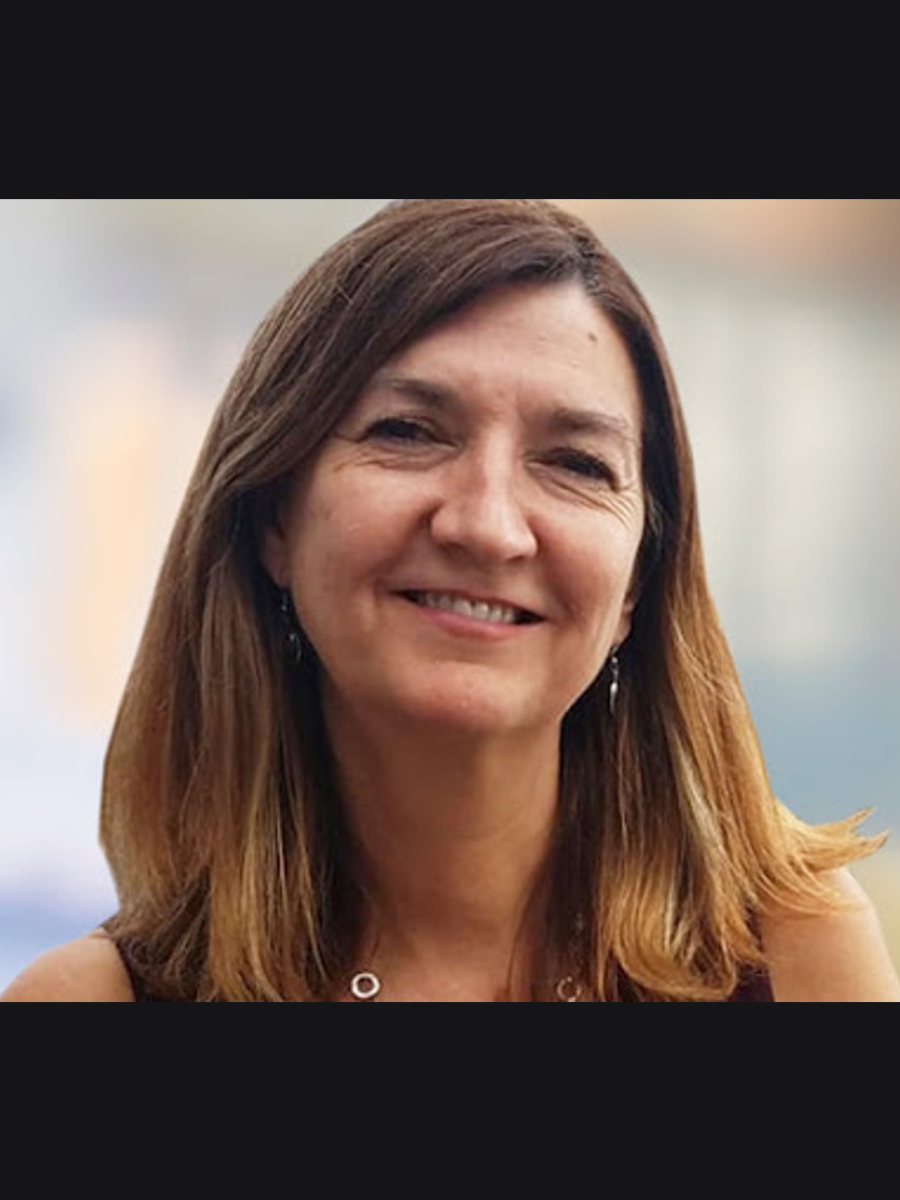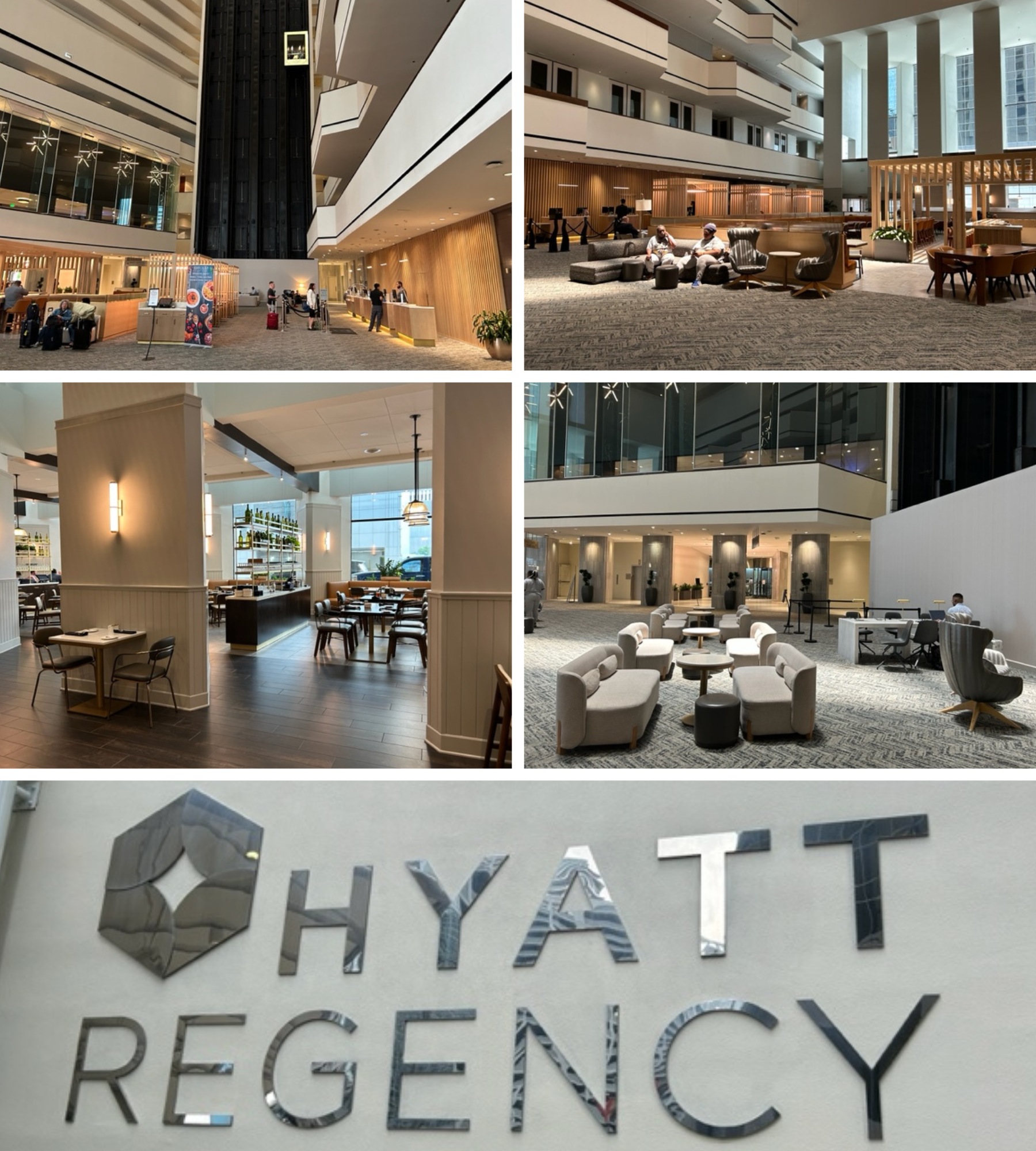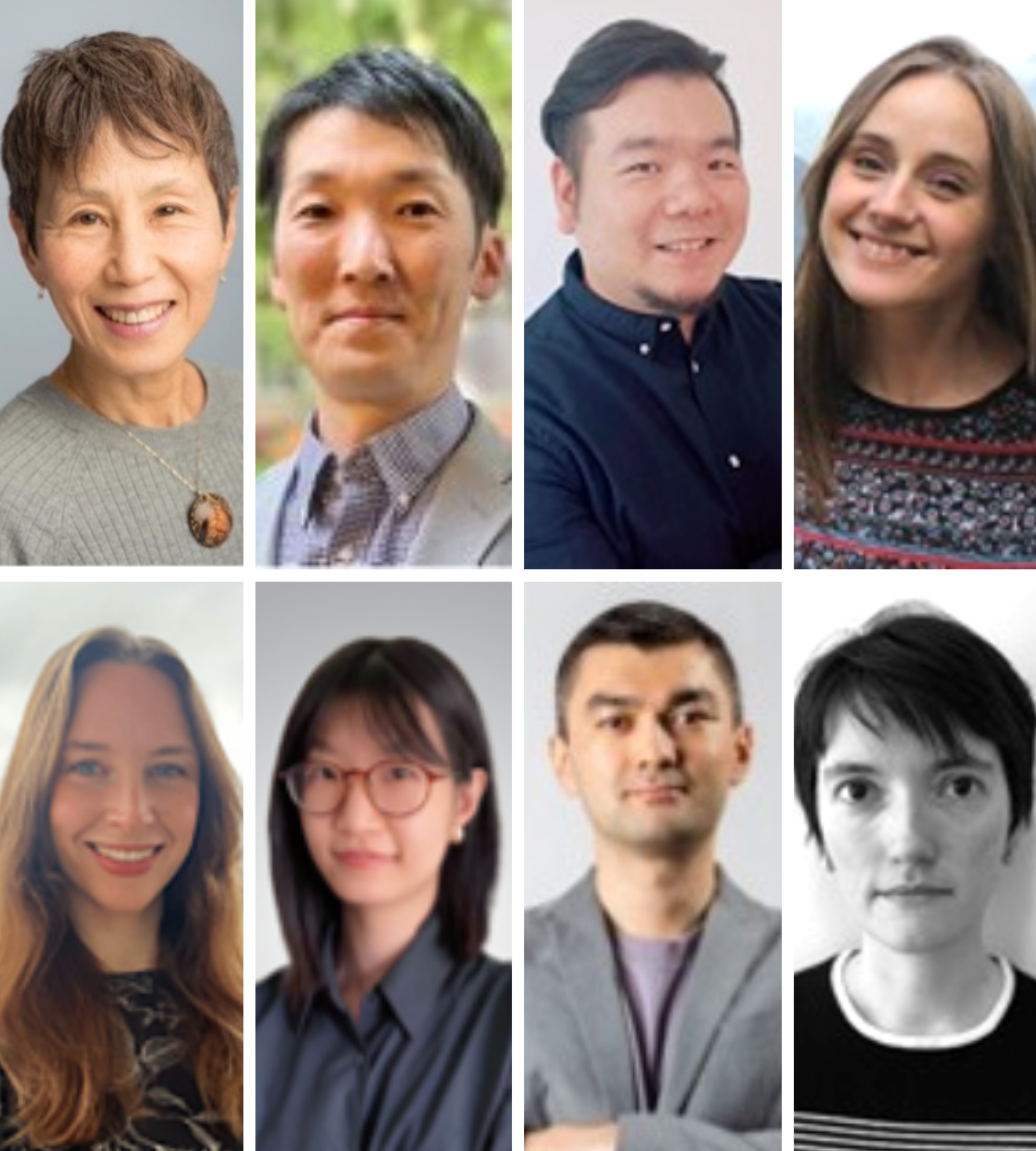AAAL Leadership Updates
June 2023 AAALetter
Table of Contents
- From DEIA to JEDI for AAAL|Lourdes Ortega
- AAAL Conference Updates|Peter De Costa & Ryuko Kubota

From DEIA to JEDI for AAAL
Lourdes Ortega, Georgetown University
AAAL President
Many AAAL members enact their profession and/or their research with an unwavering commitment to diversity and justice. AAAL, the association, also made an explicit commitment to diversity in a resolution approved by a whole-membership vote in 2013. Since then, each president has striven to augment our capacity to act upon that commitment. To refer to this work, AAAL has, until now, used the acronym DEIA (i.e., diversity, equity, inclusion, and access). And until now, our association’s DEIA goals were part of the duties of the secretary. These two facts will change as a result of the work of a task force on advancing DEIA in AAAL, charged by Past President Fabiola Ehlers-Zavala during 2022. The task force Co-Chairs Ashley Moore and Manka Varghese, members Patricia Baquedano-López and Valentino Rahming, and Executive Committee (EC) liaison Ryuko Kubota concluded their work with two recommendations, both heeded by the EC. First, starting in 2023, AAAL will embrace JEDI (i.e., justice, equity, diversity, and inclusion) as our preferred acronym. This change is in recognition of the fact that all too often diversity and equity become feel-good terms without much substance or action power. Instead, we want to remember that justice must drive this work. Second, the EC will seek approval from the membership to create a new JEDI officer who sits on the EC and chairs a new JEDI standing committee.
AAAL has experienced some successes in advancing our JEDI values, and we can all be proud of them. For one, our award portfolio reflects well our commitment to JEDI. Of the eight awards AAAL confers each year, four are devoted to JEDI. One is the Distinguished Public Service Award (DPSA), which honors non-AAAL members (e.g., writers or public figures) who raise public awareness of important social issues involving language. A second JEDI-supporting award is the Indigenous Language Scholarship (between four and six awarded each year), which aims to increase representation in the conference program of research on Indigenous languages by community-based language experts. The third JEDI-advancing award is one of the yearly graduate student awards, named the GSA-DEIA award, which funds travel to the conference for the highest ranked student abstract reporting on research that advances diversity and inclusion. Finally, the fourth award—and one that is only two years old—is the DSERG award, short for Distinguished Service and Engaged Research Graduate Student Award, which honors a student who has made a significant JEDI-informed scholarly contribution.
Another area of success with the association’s JEDI efforts can be found in several new policies and practices at the conference. For example, it is now possible for members to choose to make their pronouns known on their badges, and we offer gender-inclusive restrooms by negotiating bathroom spaces at each hotel. We have also become better at welcoming conference attendees who bring their families to the conference. For about five years, we have also experimented with offering JEDI-nourishing events. In 2019 in Atlanta, we held an event called Sobremesa Social, conceptualized by then-student Jason Mizell and Conference Chair Laura Collins. In 2021, it was an online diversity Zoom session organized by then-student Ashley Moore and Conference Chair Patsy Duff. In 2022 in Pittsburgh, my team and I came up with the concept of affinity group networking events; we offered three, and we designed them to be very low-key with no agenda—each simply hosted by one student organizer with the aim to build community around intersectional self-identifications. The affinity group networking events continued in 2023 under the care of Peter De Costa and his conference organizing team. So far, in 2022 and 2023, there were sessions for Black, Indigenous, and People of Color (BIPOC) scholars, queer applied linguists, student-parent scholars, Global South scholars, scholars with disabilities, and first-generation scholars. I hope affinity group networking events will become a permanent element of the conference program. I also hope they will be variably themed, supporting different intersectional identities in different years.
A special bright JEDI accomplishment has been the approval by full-membership vote in March 2023 of the multilingual resolution that will make it possible for our conference to overcome the tyranny of English monolingualism that had been naturalized in our program: starting in 2024, the AAAL conference is going multilingual!
On the down side, in many other areas for JEDI, the association has not done well thus far. Saliently, our neglect of disability justice became painfully obvious shortly before our Portland conference. Ryuko Kubota, as forthcoming 2024 conference chair, took swift response by convening a town hall there. The discussions made it patently clear how little has happened and how much needs to happen at AAAL if we want to overcome ableism in our conference and our association. As a result, a working group led by Ashley Moore, including members of the AAAL disability community, is issuing a survey soon to give all AAAL members an opportunity to inform the work of disrupting ableist oppression and access barriers at the conference and the association. Stay tuned!
In other areas, it is a struggle to know what JEDI should look like. One important point in case is whether holding the conference in JEDI-hostile locations—such as the state of Texas in 2024—is a betrayal of our values and the values of our membership. There is no clear-cut answer to this question. Many of us (but by no means all) believe that making our research heard and seen in Houston in 2024 can be more beneficial than refusing our presence there. We also view our participation as a form of solidarity with our research- and advocacy-active AAAL members who reside in Texas and many other JEDI-hostile geographies. And as Francis Hult felicitously suggested to me, having our first officially multilingual AAAL conference in a state that heavily restricts human rights but is substantially bilingual presents a special opportunity to foreground and draw attention to the linguistic and human diversity of Texas (including the Spanish language of Texas, the Texas variety of German, and the languages of more recent migrant communities across the state).
JEDI at AAAL shows itself as a mix of successes, failures, new efforts and recognitions, and unsolved struggles. How can AAAL continue to embed JEDI values in all our operations and activities? How can the association support collective JEDI efforts in our domains of influence, be it our own conference and association, the academy, or the larger society? We all know it takes effort and a dedicated, coordinated, honest approach—and that it is work that is never fully completed. This is why our dedication to JEDI in the form of a new EC officer and a new standing committee will be so important. Because this will entail a change in the composition of the EC, it will need to be voted upon by the full membership. So watch out for the call to vote on this change during the summer, and please make sure to cast your vote!
AAAL Conference Updates

Pictures of the Hyatt Regency Houston, site of the 2024 AAAL conference
Peter De Costa, Michigan State University, and Ryuko Kubota, University of British Columbia
AAAL President Elect and AAAL First Vice President
Reflecting on the 2023 AAAL conference in Portland (from Peter De Costa)
It’s been about three months since AAAL 2023. I hope that those of you who attended the conference found it to be stimulating and an opportunity to catch up with friends. Indeed, we’re not out of the COVID-19 woods, but I am glad that many of you were able to join us in Portland. I would also like to thank all of you for your valuable post-conference survey feedback. I can assure you that this feedback has been shared with the University of British Columbia conference planning team in order to make Houston 2024 even better.
In total, we had 1909 individuals register for the conference—a record high for a AAAL in-person conference. Thank you so much for your support!
It was an honor serving as your conference chair. Words cannot express my deep appreciation to my conference planning team and our amazing AAAL business office colleagues. As I pen this note, I would like to share that I’ve just returned from Houston on a personal trip. That being said, I could not resist dropping in at the Hyatt Regency Houston to take a quick peek at our conference hotel for next year (see photos of the hotel).
Needless to say, I am excited about the conference that Ryuko Kubota and her amazing team are organizing. Houston is a world-class city that is situated in highly progressive Harris county, Texas. And it is a cultural hub—I was in town to see Richard Strauss’s Salome, staged by the Houston Grand Opera, and was also able to squeeze in a visit to the Rothko chapel. In short, between the spectacular line of up plenary speakers, invited colloquia, and revamped roundtables, coupled with the attractions that Houston has to offer, I can assure that you’re in for an intellectual and a social feast next March. See you there, and don’t forget to submit your conference proposal in time!
Join us for the 2024 AAAL conference in Houston (from Ryuko Kubota)
As the First Vice President of AAAL, I welcome you to the 2024 AAAL annual conference, which will take place at Hyatt Regency Houston, Texas from March 16 to 19. Proposals can be submitted from June 1 until July 13, 2023 at 4:00 PM EDT. See the call for proposals for more information.
The theme for AAAL 2024 is Thinking Otherwise, Acting for Change. We increasingly face threats to the environment, human rights, and societal wellbeing, while witnessing technological advancements involving AI that are making their way at a rapid pace. These realities require applied linguists to think about and do research differently to make a positive difference in local and global communities. The 2024 conference invites presenters to share innovative research toward a transformation of hope.
The 2024 AAAL conference invites six plenary talks:
-
Muzna Awayed-Bishara, “Linguistic citizenship as decolonial pedagogy: How minoritized language speakers contest epistemic injustices in EFL education,”
-
María Cioè-Peña, “B is for Bilingual, Black, or Broken: The need for an intersectional, human(e) applied linguistics,”
-
Candace Galla, “Transforming our thinking about, of, and through indigenous and embodied language practices,”
-
Okim Kang, “Acting to change [our] perspectives: Social judgements, bias, and mitigation,”
-
Kris Aric Knisely, “Trans linguacultures, trans logics: Re-imagining the potentiality of applied linguistics through gender justice,” and
-
Judit Kormos, “Exploring equitable access to language learning for neurodiverse students in classroom settings: Toward future directions.”
In addition, seven invited colloquia will be organized by the following scholars to address the following topics:
-
Mathias Schulze, “Wilga Rivers Language Pedagogy Colloquium by CALICO: Language pedagogies and disruptive technologies,”
-
Scott Crossley, “Artificial intelligence and language acquisition,”
-
Wenhao Diao, “Critical race approaches and language studies from international perspectives,”
-
Yumi Matsumoto, “Exploring multilingualism from diverse research and methodological perspectives: Enacting equitable multilingualism,”
-
Sheilah Nicholas, “Sustaining Indigenous paradigms for enacting transformative change in the Indigenous linguistic-language paradox,”
-
Patricia Sánchez, “Language, learning, and teaching in the Texas borderlands,” and
-
Shawna Shapiro, “Recognizing and expanding the rhetorical agency of L2 writers through critical language awareness (CLA) pedagogy.”
And there will be two exciting pre-conference workshops:
-
Chatwara S. Duran & Tanita Saenkhum, “Doing duoethnography in applied linguistics: Issues and challenges in designing and conducting research,” and
-
Lauren Zentz, “Ethics and data collection in social media research: Navigating private, public, and automated spaces.”
Following the recently approved Resolution on Language of Submission and Presentation at the Annual Conference of the American Association for Applied Linguistics, the 2024 conference invites multilingual presentations. Please follow the instructions in the call for proposals and the online proposal submission site.
What is also new for 2024 is the format of roundtable discussions. Each session will last for one hour, during which three presenters will be assigned to one table to share their research with each other and with the audience.
AAAL recognizes that much more needs to be done to improve the accessibility of its conference. A working group, including members of the AAAL disability community, has been discussing how the conference can remove ableism and access barriers. Please look out for a forthcoming survey that will give everyone an opportunity to inform this work.
The 2024 AAAL conference will be held during the month of Ramadan. We encourage participants to be considerate of those who are fasting and to honor its spiritual significance. If you will be observing Ramadan and have any specific needs or concerns, please contact Nasiba Norova, member of the Diversity subcommittee of the Graduate Student Council.

and Anastasia Zhulavleva
